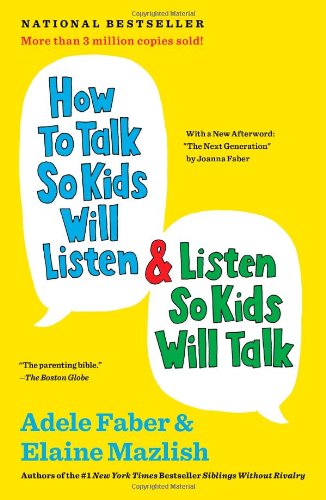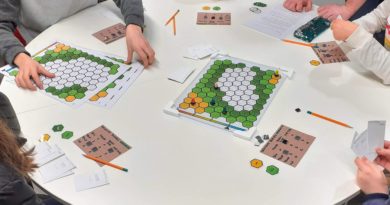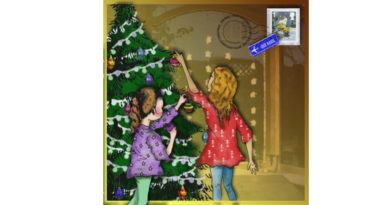Review: How to Talk So Kids Will Listen and Listen So Kids Will Talk
 For this issue of Mothering Matters, we are re-publishing a review of this book from 1997! Yes, the respected tome by Adele Faber and Elaine Mazlish has been around for at least that long (was actually first published in 1980) and is still widely praised, used and recommended. It is perfect for our theme this month, because it is truly all about making room for and humanely managing those emotional waves that run through our family. It gives parents and children excellent tools for listening to each other in a way that validates feelings.
For this issue of Mothering Matters, we are re-publishing a review of this book from 1997! Yes, the respected tome by Adele Faber and Elaine Mazlish has been around for at least that long (was actually first published in 1980) and is still widely praised, used and recommended. It is perfect for our theme this month, because it is truly all about making room for and humanely managing those emotional waves that run through our family. It gives parents and children excellent tools for listening to each other in a way that validates feelings.
If you find yourself shouting at and arguing with your children while trying to get them to live up to your expectations, this might be the time to read How to Talk So Kids Will Listen and Listen So Kids Will Talk. It is a book full of suggestions and techniques on how to improve communication with your children, thereby making yourself and your children happier. The authors, Adele Faber and Elaine Mazlish, provide a “how to” book with which parents can learn to truly listen to their children and to speak to their children in a positive way. In addition to a more pleasant atmosphere in the house, use of language can also improve the child’s – and the parent’s – sense of self-esteem. Most importantly, this book shows parents how they can correct negative behaviour without conveying negative feelings, i.e., without shouting, fighting, or sarcasm.
The first part of each chapter describes a specific problem, such as helping children deal with their feelings, engaging cooperation, punishment alternatives, encouraging autonomy, praise, and freeing children from playing roles. The chapters contain summary points for parents to keep in mind as they interact with their children. For instance, in the first chapter, which is concerned with helping distressed children deal with their feelings, the summary contains the points:
- Listen with full attention.
- Acknowledge their feelings with an utterance like “Oh…” “Mmm…” “I see…”.
- Give their feelings a name (“That must have been frustrating, embarrassing…” etc.).
- Give them their wishes in a fantasy. Pairs of cartoons follow to illustrate the problem: the unhelpful reaction of a parent and a helpful alternative.
Each chapter also has a section with exercises. The reader is invited to practice the techniques that are explained. The authors emphasise the importance of taking pen and paper and actually writing the answers down, so that the reader creates a personal record of problem-solving strategies. The second part of each chapter has accounts of parents who have tried the techniques. (These accounts have been recorded in workgroups held by the authors.) This part also gives some words of warning for cases in which certain approaches do not work (for instance the fact that certain comments are helpful for toddlers but not for teenagers).
I found the chapter that gives alternatives to punishment particularly helpful. In my experience, punishment helps only when it is used in very small doses for extreme situations. However, I have experienced some periods in which I resort to punishment too often, very frequently resulting in the opposite of what I had intended. The alternatives the authors offer are:
- Express your feelings strongly, without an attacking character.
- State your expectations. When the child does something you do not like, say how you expect things to be in the future.
- Show the child how to make amends.
- Take action. Make a change that prevents a repetition of an action you disagree with.
- Work at problem solving. Make a list together with your child of possibilities for solving the problem.
Having read this book, I find myself using many of the techniques that are described. Often they work and other times my children do not respond to my attempts. The authors are right in reminding the reader in the end that children are not robots; the strategies they present do not work like buttons you can press in order for your child to behave exactly as you expect.
By Marlene Merkt in the Nov/Dec 1997 issue of Mothering Matters



